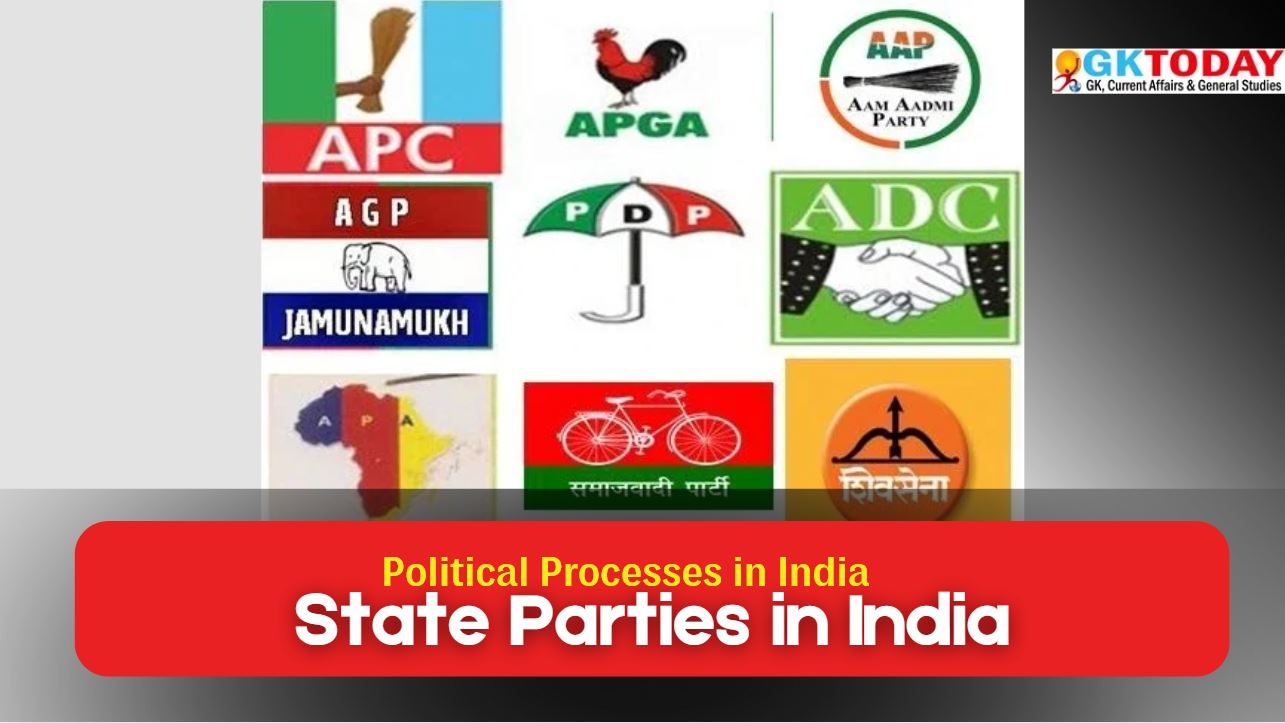State Parties in India [UGC NTA NET Political Science Notes]
State parties are political entities that operate mainly within a specific state. They address issues pertinent to their regions and reflect the aspirations of local populations. These parties aim to represent regional identities and interests in the political arena.
Characteristics of State Parties
- Regional Focus: State parties concentrate on local issues, cultural identity, and regional development.
- Electoral Base: They maintain strong support from specific geographic areas or communities.
- Leadership: Often led by local leaders with deep connections to the electorate.
- Ideological Orientation: State parties may adopt distinct ideologies that resonate with regional sentiments.
Legal Status
State parties are recognised by the Election Commission of India. They must secure a minimum percentage of votes in state elections to maintain their status. This recognition is vital for their participation in the electoral process.
Criteria for Recognition
A party must meet at least one of the following criteria to be classified as a state party:
- Win at least 2 seats in the state legislative assembly.
- Secure at least 6% of the total votes in the state assembly elections.
- Win at least 1 seat in the Lok Sabha from the state.
Examples of Prominent State Parties
Several state parties have made impacts in their respective regions:
- Dravida Munnetra Kazhagam (DMK): Based in Tamil Nadu, it focuses on Dravidian identity and social justice.
- Aam Aadmi Party (AAP): Originating in Delhi, it emphasises anti-corruption and good governance.
- Shiv Sena: Operating in Maharashtra, it champions regional pride and Marathi identity.
- Telugu Desam Party (TDP): Founded by Nandamuri Taraka Rama Rao in Andhra Pradesh, it centres on Telugu identity and development.
- Trinamool Congress (TMC): Based in West Bengal, it focuses on Bengali identity and welfare policies.
Role in Indian Politics
State parties hold importance in the Indian political framework:
- Regional Representation: They address local issues often overlooked by national parties.
- Coalition Politics: State parties are crucial in forming state governments and influencing national politics through alliances.
- Policy Formulation: They contribute to the development of state-specific policies and governance models.
Challenges Faced by State Parties
Despite their importance, state parties encounter various challenges:
- Centralisation of Power: National parties often dominate the political landscape, limiting the influence of state parties.
- Resource Constraints: They face limited financial and organisational resources compared to national parties.
- Internal Factionalism: Disputes within the party can weaken their electoral strength and effectiveness.
Impact on Federalism
State parties influence India’s federal structure:
- Strengthening Federalism: They promote regional interests, ensuring diverse representation in governance.
- Counterbalancing Central Authority: State parties advocate for state rights and autonomy, acting as a check on the central government.
Electoral Performance
The electoral performance of state parties varies widely:
- Some have transitioned to national prominence, such as DMK and TMC.
- Success often depends on local issues, leadership quality, and party organisation.
Future Trends
The future of state parties appears promising:
- There is an increasing importance of regional parties in national politics.
- New state parties may emerge, reflecting evolving social and economic issues.


